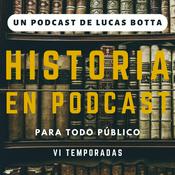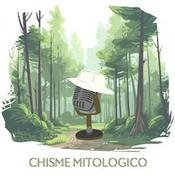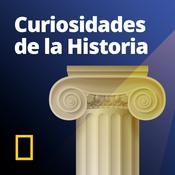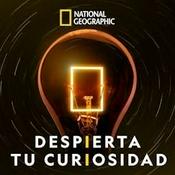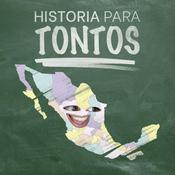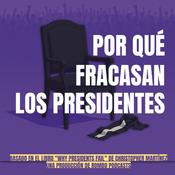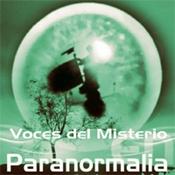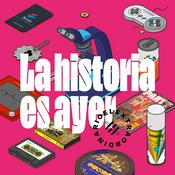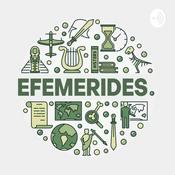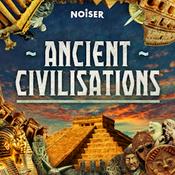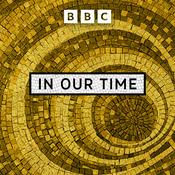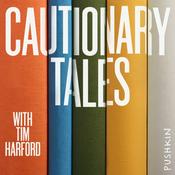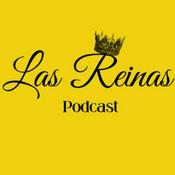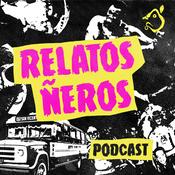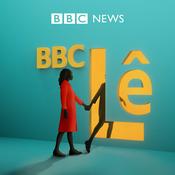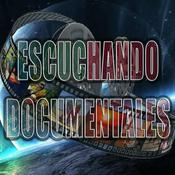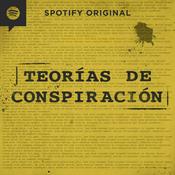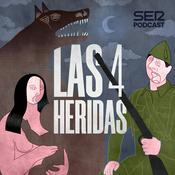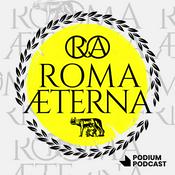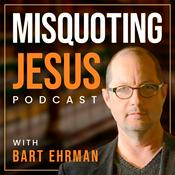639 episodios
- In the early 2000s, Sunil Nakrani felt stuck.
Back then, websites crashed all the time. When Sunil noticed this, he decided he was going to fix the internet. But after nearly a year of studying the architecture of the web, he was no closer to an answer. In desperation, Sunil sent out a raft of cold emails to engineering professors. He hoped someone, anyone, could help him figure this out. Eventually, he learned that the internet could only be fixed if he paid attention to the humble honeybee.
This is the story of the Honeybee Algorithm: How tech used honeybees to build the internet as we know it.
Special thanks to John Bartholdi, John Vande Vate, Sammy Ramsey, James Marshall, Steve Strogatz, Duc Pham, and Heiko Hamann.
We found out about this story thanks to our friends at AAAS, who run the one and only Golden Goose Awards. The award goes to government funded science that sounds trivial or bizarre, but goes on to change the world. The Honeybee Algorithm won a Golden Goose Award back in 2016 (https://zpr.io/ePxaaYja6YF4). Thank you to our friends there: Erin Heath, Gwendolyn Bogard, Valeria Sabate, Joanne Padron Carney, and Meredith Asbury.
EPISODE CREDITS:
Reported by - Latif Nasser
with help from - Maria Paz Gutiérrez
Produced by - Maria Paz Gutiérrez, Annie McEwen and Pat Walters
and Edited by - Pat Walters
EPISODE CITATIONS:
Videos -
Golden Goose Award video about 2016 winners (https://zpr.io/eXwTJKGL6F8S)
Books -
The Wisdom of the Hive: The Social Physiology of Honeybee Colonies (https://www.hup.harvard.edu/books/9780674953765) by Thomas D. Seeley (1995, Harvard University Press)
Piping Hot Bees & Boisterous Buzz-Runners: 20 Mysteries of Honey Bee Behavior Solved (https://zpr.io/tNDqkw372Rhr) by Thomas D. Seeley
And, Paths of Pollen (https://zpr.io/cqRPpAdGRwMi) by Stephen Humphrey. One of our former transcribers who we recently learned had hidden talents far beyond the invaluable work they did for us. This book is only tangentially related to the content in the episode, but super cool in its own right.
Sign up for our newsletter!! It includes short essays, recommendations, and details about other ways to interact with the show. Signup (https://radiolab.org/newsletter)!
Radiolab is supported by listeners like you. Support Radiolab by becoming a member of The Lab (https://members.radiolab.org/) today.
Follow our show on Instagram, Twitter and Facebook @radiolab, and share your thoughts with us by emailing [email protected].
Leadership support for Radiolab’s science programming is provided by the Simons Foundation and the John Templeton Foundation. Foundational support for Radiolab was provided by the Alfred P. Sloan Foundation. - In this episode, we break the thermometer and watch the mercury spill out as we discover that temperature is far stranger than it seems. We first ran this episode in 2021: Five stories that run the gamut from snakes to stars. We start out underwater, with a species of snake that has evolved a devious trick for keeping warm. Then we hear the tale of a young man whose seemingly simple method of warming up might be the very thing making him cold. And Senior Correspondent Molly Webster blows the lid off the idea that 98.6 degrees Fahrenheit is a sound marker of health.
EPISODE CREDITS:
Reported by - Lulu Miller and Molly Webster
Produced by - Becca Bressler, Lulu Miller and Molly Webster
with help from - Carin Leong
Fact-checking by - Emily Krieger
Sign up for our newsletter!! It includes short essays, recommendations, and details about other ways to interact with the show. Signup (https://radiolab.org/newsletter)!
Radiolab is supported by listeners like you. Support Radiolab by becoming a member of The Lab (https://members.radiolab.org/) today.
Follow our show on Instagram, Twitter and Facebook @radiolab, and share your thoughts with us by emailing [email protected].
Leadership support for Radiolab’s science programming is provided by the Simons Foundation and the John Templeton Foundation. Foundational support for Radiolab was provided by the Alfred P. Sloan Foundation. - One spring evening in 2024, a science journalist named Rachel Gross bombed at karaoke. The culprit was a bleed in a fist-sized clump of neurons tucked down in the back of her brain called the cerebellum. A couple weeks later, her doctors took a bit of it out, assuring her it was just helping her with motor coordination — she might be a bit clumsy for a while, but she’d still be herself. But afterwards, she didn't feel like herself. So she dove into the dusty basement of the brain (and brain science) to figure out why. What Rachel found was a burgeoning new frontier in neuroscience. We learn what singing Shakira on stage has to do with reaching for a cup of coffee — and how the surprising relationship between the two is making us rethink what we think about thinking.
Special thanks to Warzone Karaoke at Branded Saloon, Dr. Joanne Loewy and the Singing Together, Measure by Measure choir at the Louis Armstrong Center for Music and Medicine (http://musicandmedicine.org/) at Mount Sinai Union Square, Dag Spicer and the Computer History Museum, Désirée Lie, Mark Gross, Daniel A. Gross, Brittany Aguilar, and, of course, Shakira.
EPISODE CREDITS:
Reported by - Rachel Gross
Produced by - Sindhu Gnanasambandan
EPISODE CITATIONS:
Articles -
“Ignoring the cerebellum is hindering progress in neuroscience.” (https://pubmed.ncbi.nlm.nih.gov/39934082/), by Wang et al, 2025
“The cerebellum and cognition.” (https://pubmed.ncbi.nlm.nih.gov/29997061/), by Schmahmann JD. Neurosci Lett. 2019
“How did brains evolve?” (https://pubmed.ncbi.nlm.nih.gov/11805823/), by Barton RA., Nature. 2002
Books -
Vagina Obscura (https://www.rachelegross.com/book), by Rachel E. Gross
Sign up for our newsletter!! It includes short essays, recommendations, and details about other ways to interact with the show. Signup (https://radiolab.org/newsletter)!
Radiolab is supported by listeners like you. Support Radiolab by becoming a member of The Lab (https://members.radiolab.org/) today.
Follow our show on Instagram, Twitter and Facebook @radiolab, and share your thoughts with us by emailing [email protected].
Leadership support for Radiolab’s science programming is provided by the Gordon and Betty Moore Foundation, Science Sandbox, a Simons Foundation Initiative, and the John Templeton Foundation. Foundational support for Radiolab was provided by the Alfred P. Sloan Foundation. - Most of us spend some part of our lives feeling bad about ourselves and wanting to feel better. But this preoccupation is a surprisingly new one in the history of the world, and can largely be traced back to one man: a rumpled, convertible-driving California state representative named John Vasconcellos who helped spark a movement that took over schools, board rooms, and social-service offices across America in the 1990s. This week, we look at the rise and fall of the self-esteem movement and ask: is it possible to raise your self-esteem? And is trying to do so even a good idea?
Special thanks to big thank you to the University of California, Santa Barbara Library for use of audio material from their Humanistic Psychology Archives and to their staff for helping located so many audio recordings.
EPISODE CREDITS:
Reported by - Heather Radke and Matt Kielty
Produced by - Matt Kietly
Original music and sound design by - Jeremy S. Bloom and Matt Kielty
Flute performance and compositions by - Ben Batchelder
Voiceover work by - Dann Fink and David Gebel
Mixing help by - Jeremy S. Bloom
Fact-checking by - Anna Pujol-Mazzini and Angely Mercado
and Edited by - Pat Walters
EPISODE CITATIONS:
Articles -
UCSB Humanistic Psychology Archive (https://zpr.io/HfVjUmvcVevE)
Books -
Selfie: How We Became So Self-Obsessed and What It's Doing to Us (https://zpr.io/eGRyqz9zNQHu) by Will Storr. Counterpoint, 2018.
A Liberating Vision (https://zpr.io/tJn7BR5m84fv) by Vasconcellos, John. Impact Publishers, Inc., 1979
The Therapeutic State (https://zpr.io/tJn7BR5m84fv) by Nolan, James, Jr. NYU Press, 1998
Sing up for our newsletter. It includes short essays, recommendations, and details about other ways to interact with the show. Sign up (https://radiolab.org/newsletter)!
Radiolab is supported by listeners like you. Support Radiolab by becoming a member of The Lab (https://members.radiolab.org/) today.
Follow our show on Instagram, Twitter and Facebook @radiolab, and share your thoughts with us by emailing [email protected].
Leadership support for Radiolab’s science programming is provided by the Gordon and Betty Moore Foundation, Science Sandbox, a Simons Foundation Initiative, and the John Templeton Foundation. Foundational support for Radiolab was provided by the Alfred P. Sloan Foundation. - This episode, first aired in 2019, brings you the story of John Scott, the professional hockey player that every fan loved to hate. A tough guy. A brawler. A goon. But when an impish pundit named Puck Daddy called on fans to vote for Scott to play alongside the world’s greatest players in the NHL All-Star Game, Scott found himself facing off against fans, commentators, and the powers that be. Was this the realization of Scott’s childhood dreams? Or a nightmarish prank gone too far? Today on Radiolab, a goof on a goon turns into a parable of the agony and the ecstasy of the internet, and democracy in the age of Boaty McBoatface.
Special thanks to Larry Lynch and Morgan Springer.
Check out John Scott's "Dropping the Gloves" podcast (https://www.droppingthegloves.com/) and his book (https://www.simonandschuster.com/books/A-Guy-Like-Me/John-Scott/9781501159657) "A Guy Like Me".
EPISODE CREDITS:
Reported by - Latif Nasser
Produced by - Matt Kielty
Original music and sound design contributed by -
John Dryden, Thee Oh Sees, Weedeater and Bongzilla.
Sign up for our newsletter!! It includes short essays, recommendations, and details about other ways to interact with the show. Signup (https://radiolab.org/newsletter)!
Radiolab is supported by listeners like you. Support Radiolab by becoming a member of The Lab (https://members.radiolab.org/) today.
Follow our show on Instagram, Twitter and Facebook @radiolab, and share your thoughts with us by emailing [email protected].
Leadership support for Radiolab’s science programming is provided by the Simons Foundation and the John Templeton Foundation. Foundational support for Radiolab was provided by the Alfred P. Sloan Foundation.
Más podcasts de Historia
Podcasts a la moda de Historia
Acerca de Radiolab
Radiolab is on a curiosity bender. We ask deep questions and use investigative journalism to get the answers. A given episode might whirl you through science, legal history, and into the home of someone halfway across the world. The show is known for innovative sound design, smashing information into music. It is hosted by Lulu Miller and Latif Nasser.
Sitio web del podcastEscucha Radiolab, The Rest Is History y muchos más podcasts de todo el mundo con la aplicación de radio.net

Descarga la app gratuita: radio.net
- Añadir radios y podcasts a favoritos
- Transmisión por Wi-Fi y Bluetooth
- Carplay & Android Auto compatible
- Muchas otras funciones de la app
Descarga la app gratuita: radio.net
- Añadir radios y podcasts a favoritos
- Transmisión por Wi-Fi y Bluetooth
- Carplay & Android Auto compatible
- Muchas otras funciones de la app


Radiolab
Escanea el código,
Descarga la app,
Escucha.
Descarga la app,
Escucha.



